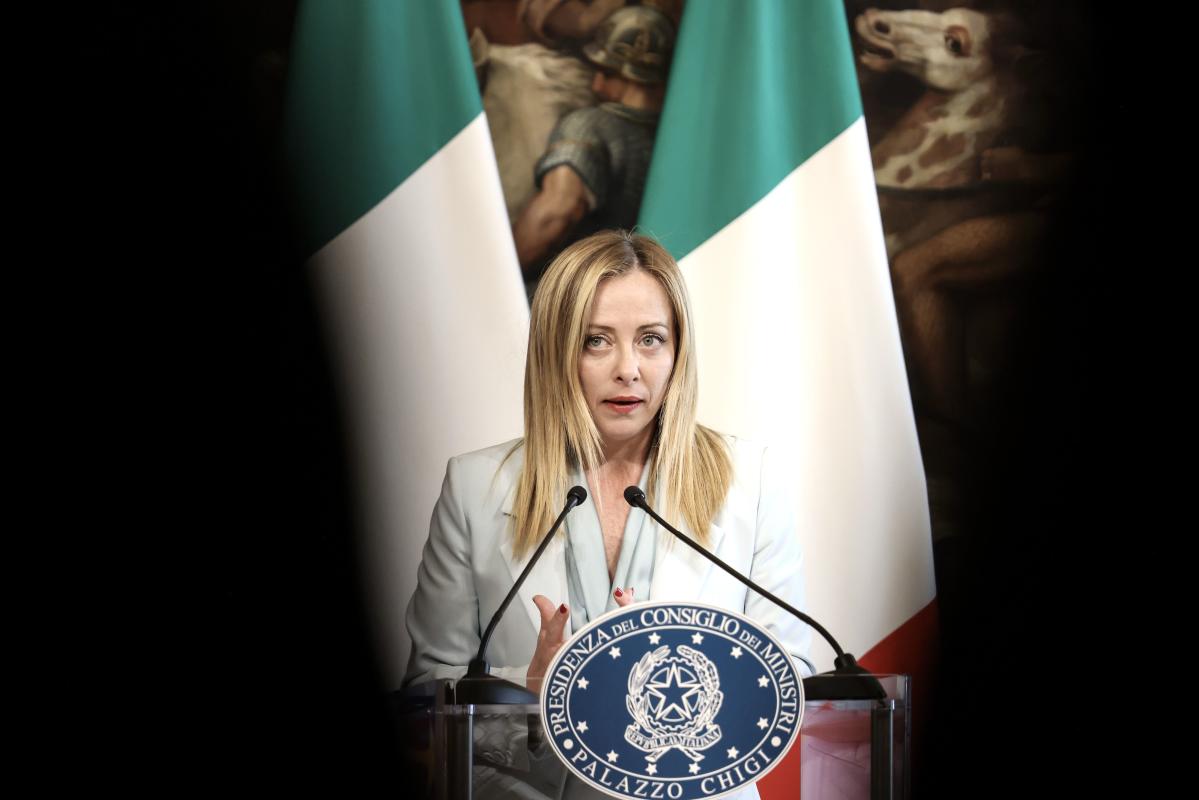
(Bloomberg) — Prime Minister Giorgia Meloni’s cabinet is tapping Italy’s banks and insurers to help finance its budget, according to a new plan designed to deliver on giveaways pledged to voters.
Most Read from Bloomberg
“As we promised, there will be no new taxes for citizens,” Meloni said in a post on X on Tuesday. “€3.5 billion from banks and insurance companies will be allocated to healthcare and the most vulnerable.”
She didn’t specify how that money would be collected or over what time frame. The Treasury confirmed that the financial sector will help cover spending, but also failed to provide details. Finance Minister Giancarlo Giorgetti is set to hold a press conference on Wednesday at 11 a.m. in Rome.
The budget was agreed by ministers at a gathering late on Tuesday, just in time to meet a deadline to submit the plan for European Union scrutiny. The measures still need to be submitted to parliament for signoff.
The outcome, in a package with a gross value of €30 billion ($33 billion) for 2025, ends weeks of government agonizing over how to reconcile a vow to accelerate Italy’s deficit cutting with the political necessity of meeting expensive election promises.
Those pledges include a reduction in the tax wedge — the difference between what workers cost employers and what gets paid out to them — and aid to low-income households and small businesses.
The government is also boosting defense spending and outlays on healthcare.
The announcement crystallizes an aim of Giorgetti’s — a member of the League, which is a junior partner in the governing coalition — to deliver a budget reaping “sacrifices from everyone” with all parts of society helping out, as he described it this month in an interview with Bloomberg.
League chief Matteo Salvini, who also is a deputy prime minister, declared the hit on banks and insurers as a “victory” for his part, according to a post on X.
By tapping banks, Giorgetti is revisiting a prior target for the government, which has singled them out repeatedly for gaining excessively from a high interest-rate environment.
In the first half, profit at Italy’s largest lender, Intesa Sanpaolo SpA, rose 13% from a year earlier. At UniCredit SpA, its next-biggest rival, it rose about 20%.
Past attempts to tax banks haven’t worked however. Last year, an unexpected proposal to do so flopped after a major selloff in Italian stocks. Giorgetti promised there would be no repeat of that mistake, and the Italian Banking Association has worked with government officials in recent weeks on a solution to contain any fallout.
Giorgetti is also drumming up more money by cutting expenses in public administration.
The need to improve Italy’s finances took on more urgency ever since it was placed into a special monitoring regime by Brussels officials for running deficits far in excess of the EU’s 3%-of-output limit.
In a bid to rebuild fiscal credibility, Giorgetti quickened the timetable for that, pledging to bring shortfalls to below that ceiling by 2026 and to start reducing its mammoth debt a year later.
So far, in contrast to the investor alarm surrounding France in recent weeks, Italy has managed to reassure financial markets. The spread between Italy’s 10-year bonds and those of Germany — a key measure of risk in the region — touched 124 basis points on Tuesday, the lowest since March.
(Updates with Treasury statement starting in third paragraph)
Most Read from Bloomberg Businessweek
©2024 Bloomberg L.P.
EMEA Tribune is not involved in this news article, it is taken from our partners and or from the News Agencies. Copyright and Credit go to the News Agencies, email news@emeatribune.com Follow our WhatsApp verified Channel




